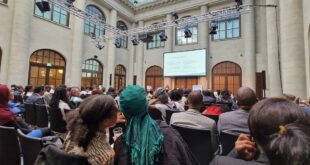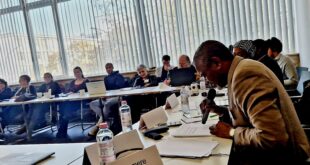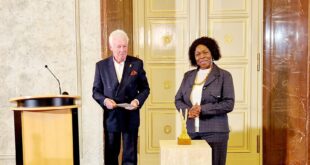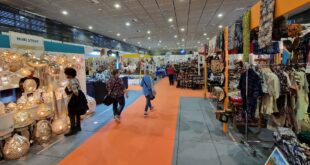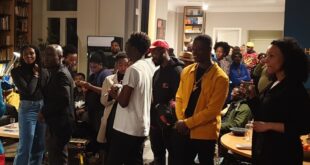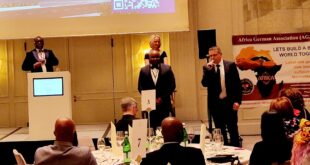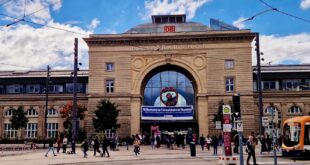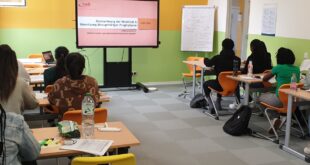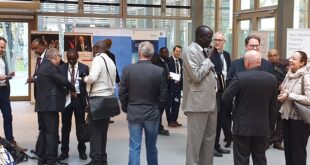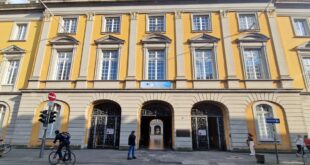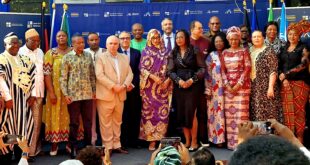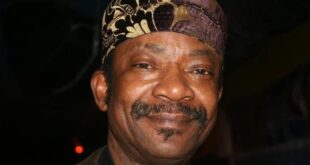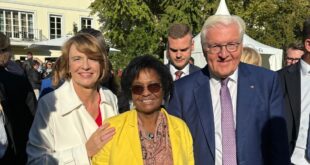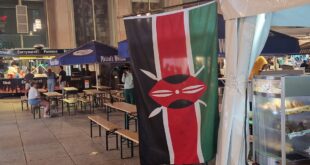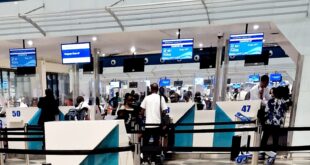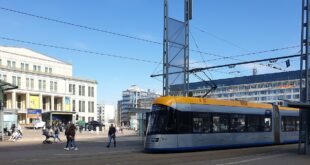The African Network in Germany (TANG) celebrated the concluding forum of its municipal development policy (kommunale Entwicklungspolitik) activities on Saturday, attracting participants, ranging from German government officials and communal politicians to representatives of African diaspora organisations.
Declaring the event open, Dr Sylvie Nantcha, chairman of TANG, gave a brief introduction of the organization, a network of more than 600 African associations and individual members in Germany, whose integration and development projects it coordinates.
“We have so much potential and we can achieve much through our involvement in development projects – either in Germany or in our home countries,” Ms Nantcha said.
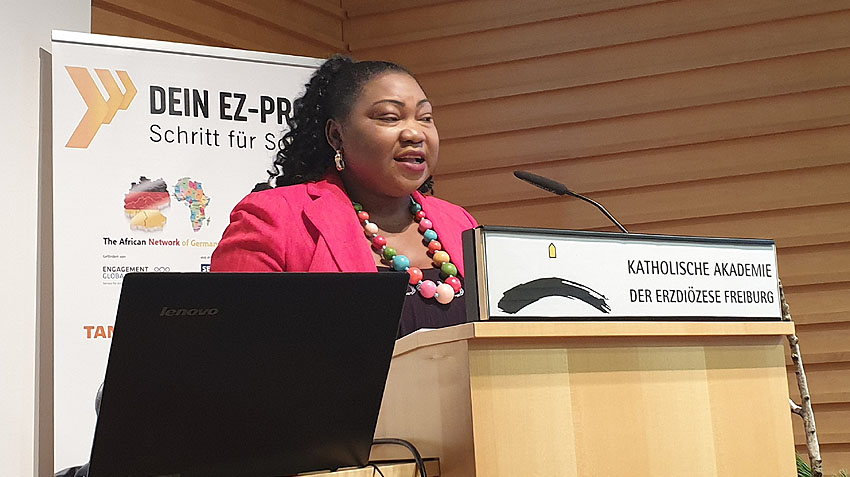
The event, attended by dignitaries, including Kevin Bochers of Engagement Global & SKEW and Stefan Beißwenger, a director at Gesellschaft für Internationale Zusammenarbeit (GIZ), also marked the end-of-year activities of TANG.
Nantcha, a former councillor in Freiburg, gave a brief presentation of one of her organisation’s projects ‘Dein EZ-Projekt – Schritt für Schritt’ (Your Development Project – Step for Step), which offers a platform for dialogue between communes in Germany and in the Global South for the exchange of experiences and the development of solutions to international problems.
Dein EZ-Projekt encourages Africans to initiate projects to promote integration in Germany and the development of their home countries.
TANG mobilises people of African origin in Germany, who are active in their communities, to participate in integration and development projects. Diaspora organisations and individual members should initiate projects and approach their local communities in Germany on the possibilities of support for their implementation, she advised.
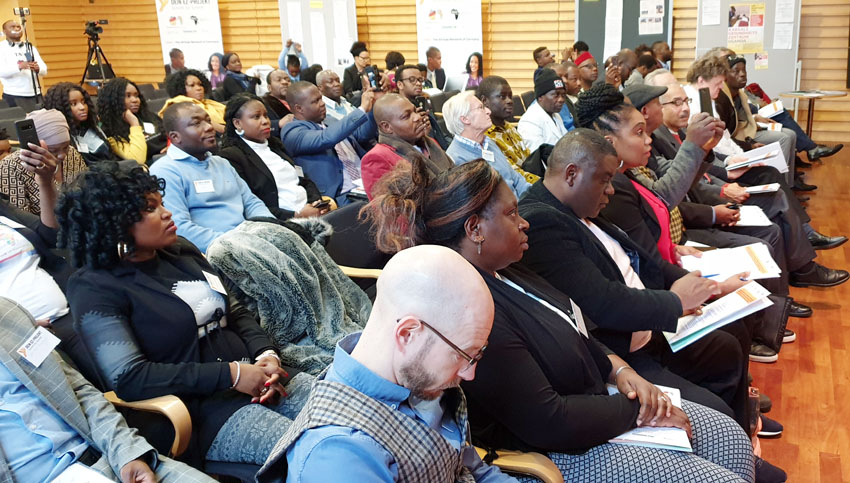
Within the framework of Dein EZ-Projekt, TANG guides project initiators from conception to realisation, offering advisory service that includes helping project initiators to write down their ideas for presentation and look for funders as well as supporting them in various aspects of implementation.
Nantcha, who was appointed by the federal government into a technical commission on migration in July, said the event was convened to take stock of the year and to reappraise.
She said it’s important for Germans with migration history to familiarise themselves with the Basic Law (constitution) because they’re full-fledged members of society with all its privileges and duties. “Africans should be active in society and contribute to the shaping of the future of the country,” she appealed.
“Be the change you want to see in the world!”
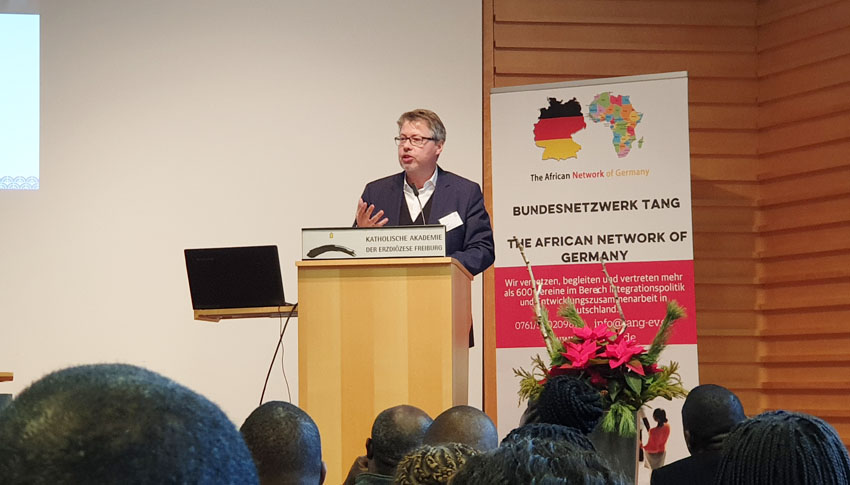
Kevin Bochers of Engagement Global spoke on the activities of the non-profit organisation, which supports the participation of municipalities and civil society in development projects.
Founded in 2012, Engagement Global, which works on behalf of the Federal Ministry for Economic Cooperation and Development or BMZ), grants financial support to development projects, promoting integration at the communal level and the realisation of the Sustainable Development Goals (SDGs).
Many projects promoting development in Africa were presented at the 1-day event. One of them is WIDU, an initiative of BMZ, which is being implemented by the Gesellschaft für Internationale Zusammenarbeit or GIZ, a German development agency.
The objective of WIDU is to leverage diaspora remittances for the creation of jobs and better economic prospects in Ghana and Cameroon.
The project, developed in partnership with TANG and which is still in a pilot phase, encourages people living in Germany who hail from both countries, to empower small and micro entrepreneurs in Ghana and Cameroon to set up new businesses or expand existing ones.

Presenting WIDU, Stefan Beißwenger, a director at GIZ, said Africans living in Germany send about €1.2 billion to their home countries annually, quoting World Bank figures. However, most of these funds go into consumption, he noted.
The German government believes that if more of the money sent to Africa goes into investment, such as buying sewing machines, working tools or agricultural implements, the remittances would create more jobs in the recipient countries, leading to a sustainable reduction of poverty in Africa.
WIDU therefore seeks to mobilize diaspora financial capital to support small-scale entrepreneurs in Africa by providing matching grants for remittances that go into productive investment.
Under the initiative, members of the Cameroonian and Ghanaian diaspora in Germany will identify an entrepreneur they want to support. They can donate between up to a maximum of 1,250 euros to the recipient who should have the same amount to invest in the business venture.
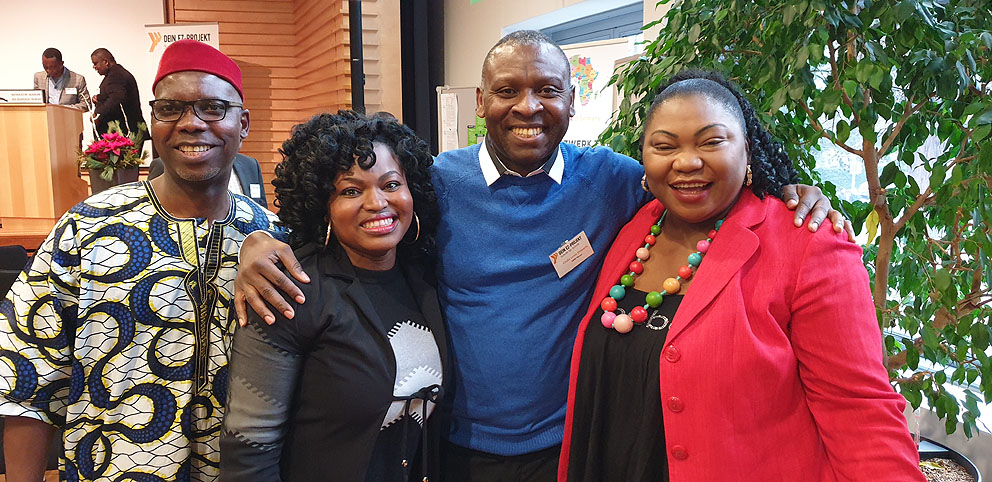
The German government after vetting the process will match the amounts contributed by the diaspora and the entrepreneur in grants. For example, if a Ghanaian in Germany finds an entrepreneur in Ghana who has 500 euros to invest in a business, he/she will also contribute 500 euros. The German government will match the amount contributed (500+500 euros) with a grant of 1,000 euros. This means that the entrepreneur in Ghana will receive 500 euros from the diaspora donor and 1,000 euros from the German government.
Mr Beißwenger called for the active participation of Cameroonians and Ghanaians in the scheme, which is still being tested, to be able to improve it for eventual extension to other countries in Africa. The pilot phase is expected to end in April 2020.
Beißwenger charged TANG to make the initiative known in the African community and guide those interested in participating in it.
A panel, comprising Dr Nantcha, Kevin Bochers, Kamil Saygan, Anthony Muoneke and Fatou Ndiaye Hausen, discussed communal development co-operation – its prospects, challenges and opportunities.
Kamil Saygan, who is the chairman of the Foreigners’ Council (Ausländerbeirat) of Kassel, called for an increased engagement of Africans at the municipal level, especially in organisations that are active on the issues affecting people at the grassroots.
He explained that Foreigners’ Councils advocate for the interests of people of migrant origin, including proposing new laws or amendments to remove obstacles to their political participation. “We’re all here, we have equal rights and responsibilities in our communes,” he said. “We should be alive to that fact.”

Nantcha, complementing Saygan, said Foreigners’ Councils could raise the issue of development co-operation at the political discussions of the communes. “We live between two nations; we can help our local communities in Germany to better understand the world through our countries of origin,” Nantcha said.
Ms Hausen of Moving Africa e.V., a Freiburg-based association, talked about her project to support women micro-entrepreneurs engaged in the production of Shea butter in Mali, enabling them to earn a decent living from their labour. The Senegalese-born social entrepreneur believes that supporting women at the grassroots is a very effective way of tackling poverty in Africa.
Mr Bochers appealed to Africans to become actively involved in their communes. “Communes need people with migration background in development cooperation because they have very few competent people in the field,” he added. “Communes are very important as they have resources and are more independent in their actions.”
Another project on the use of drones for irrigating and applying fertilisers and pesticides on farms was presented by a group of Cameroonian engineers led by Guy Bami Watcho while Drake Iga, an Ugandan, proposed the construction of a health centre in his home country.
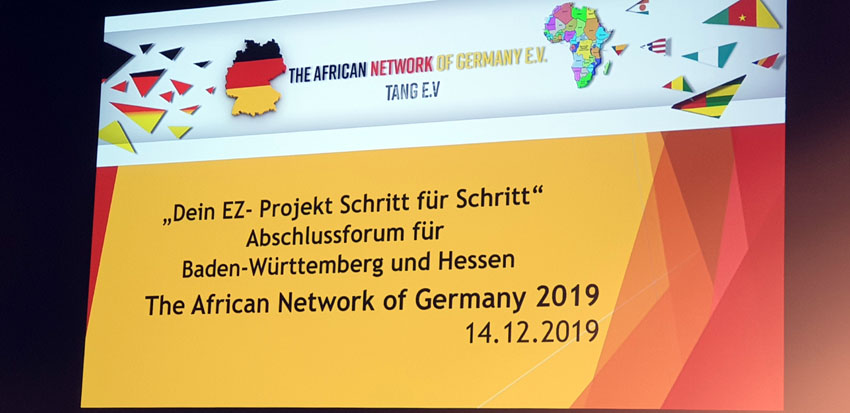
Mr Iga emphasised that health care was an important issue in development as poverty could only be fought if the people were healthy to work to earn income. He is seeking support for the €185,000-project, whose foundation has already been laid in Kabaale in the Ugandan district of Wakiso.
Afro German Academic Network (Afro Deutsches Akademiker Netzwerk or ADAN), on its part, is currently implementing a project under which young diaspora professionals are sent to Africa to initiate know-how transfer to bring out the potential of young Africans in the continent. The organisation seeks to be an active agency connecting the diaspora and Africa and bundling their human and financial resources for the development of the continent.
Projects being implemented in Germany were presented at the event as well.
Afrika ist kein Land, a project, presented Petra Kistler of TANG, seeks to correct a uni-dimensional view of Africa, by bringing together young Germans regularly and presenting Africa through music, arts etc to them, giving the audience a more diverse, realistic picture of the continent.
Maithy Mouné, managing director of Each One Teach One (EOTO), a Berlin-based non-profit organisation and conveners of the PAD Week Germany, spoke on Afrozensus (Afro Census), a project that seeks through data collection and analysis to provide a much clearer picture of racism and discrimination as they affect Black people in Germany.
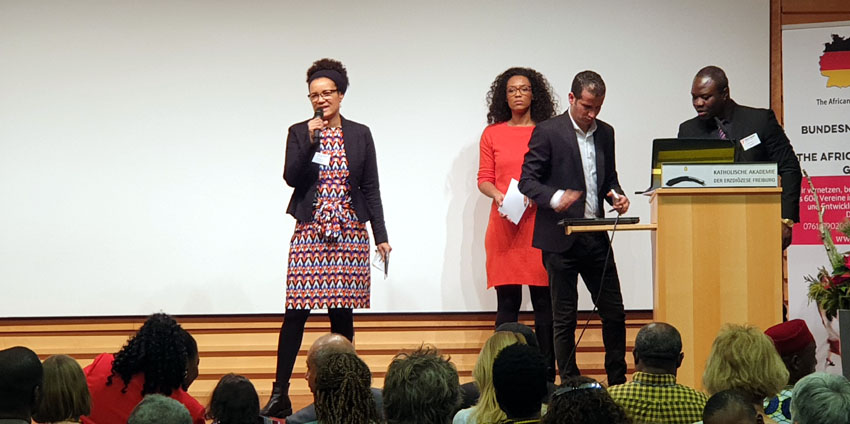
Ms Mouné explained that though Africans suffer most from racism, they’re the least to complain about it. She called for an active participation of Africans in Germany in the project to ensure its success.
Dr Anyangwe Ngassa, a surgeon from Cameroon, also presented his YouTube channel that informs and enlightens people in his home country on health issues in pidgin language.
The event, ably moderated by Dr Boniface Mabanza of KASA, closed with an elaborate cultural programme, anchored by TV personality Anne Chebu and featuring singer Christian Bakotessa and other performers from Syria, Iraq, Ghana, among others, after which the guests were treated to a sumptuous African buffet.
Femi Awoniyi
More about The African Network in Germany (TANG) at http://tang-ev.de/
 THE AFRICAN COURIER. Reporting Africa and its Diaspora! The African Courier is an international magazine published in Germany to report on Africa and the Diaspora African experience. The first issue of the bimonthly magazine appeared on the newsstands on 15 February 1998. The African Courier is a communication forum for European-African political, economic and cultural exchanges, and a voice for Africa in Europe.
THE AFRICAN COURIER. Reporting Africa and its Diaspora! The African Courier is an international magazine published in Germany to report on Africa and the Diaspora African experience. The first issue of the bimonthly magazine appeared on the newsstands on 15 February 1998. The African Courier is a communication forum for European-African political, economic and cultural exchanges, and a voice for Africa in Europe.


